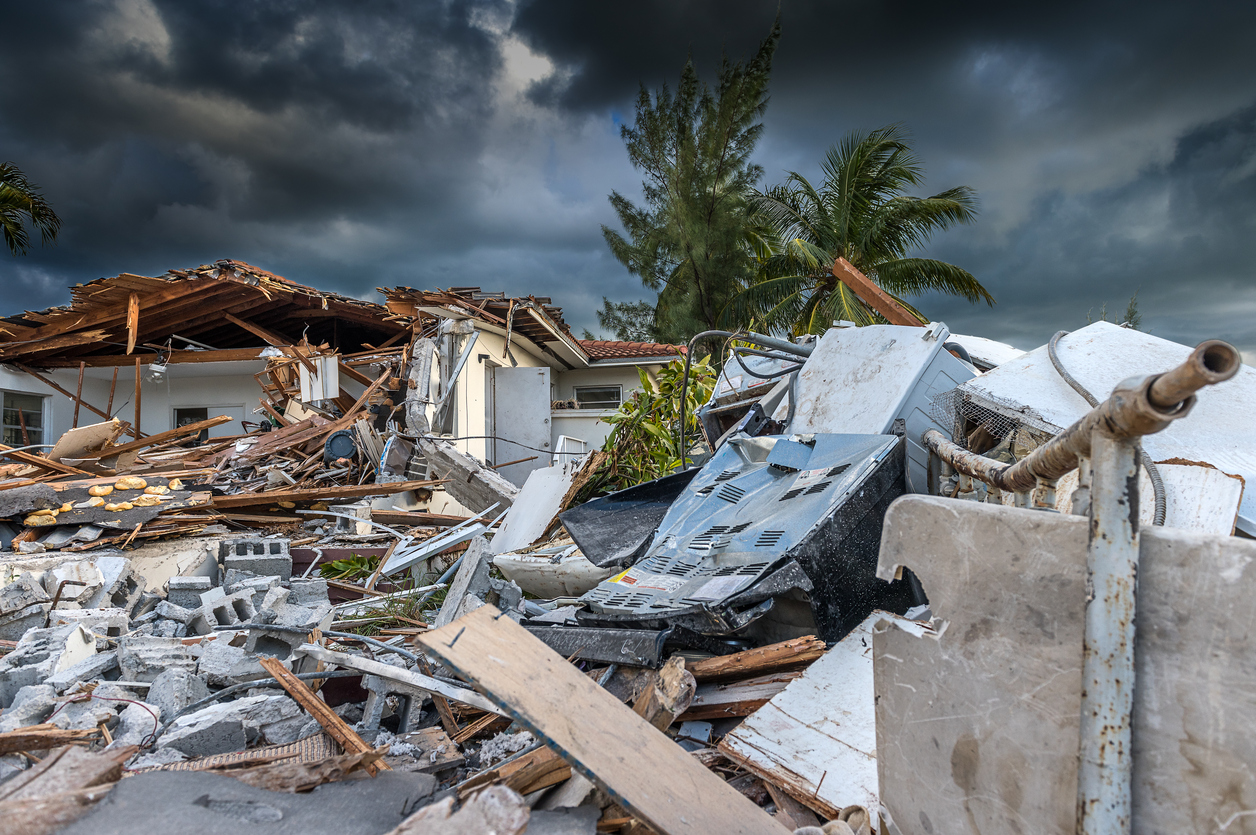Florida Senate Bill 2264 has been set on the agenda of the Banking and Insurance Committee Agenda this Wednesday. This is the same legislation that was filed in the Florida House of Representatives as HB 1181.
I previously discussed this legislation in a post, Policyholders and Public Adjusting Under Attack in the Florida House of Representatives. I have met with and discussed the proposed House Legislation with Representative Janet Long which lead to a post last week, Representative Janet Long Gets a Hug From Chip Merlin.
Many Public Adjusters are quite understandably concerned about this legislation. I would urge those that would like to participate in this process to contact and do so through the National Association of Public Insurance Adjusters (NAPIA) and the Florida Association of Public Insurance Adjusters (FAPIA) to learn how your participation can be most positively effective.
Here is the Senate Bill as it currently reads:
Florida Senate – 2010 SB 2264
By Senator Bennett
21-01397-10 20102264__
1 A bill to be entitled
2 An act relating to public adjusters; amending s.
3 626.854, F.S.; providing a definition; prohibiting
4 public adjusters from making certain employment
5 solicitations; prohibiting certain unsolicited written
6 communications; providing exception requirements;
7 revising prohibited solicitations; revising prohibited
8 charges by public adjusters; providing a definition;
9 amending s. 626.8796, F.S.; specifying required
10 information in public adjuster contracts; creating s.
11 626.70132, F.S.; barring certain personal lines
12 residential coverage insurance claims subject to
13 certain notice requirements; providing a definition;
14 providing nonapplicability to certain civil actions
15 limitations; providing an effective date.
16
17 Be It Enacted by the Legislature of the State of Florida:
18
19 Subsections (5), (6), and (11) of section Section 1.
20 626.854, Florida Statutes, are amended to read:
21 “Public adjuster” defined; prohibitions.—The 626.854
22 Legislature finds that it is necessary for the protection of the
23 public to regulate public insurance adjusters and to prevent the
24 unauthorized practice of law.
25 (5)As used in this subsection, the term “solicit” or (a)
26 “solicitation” means contact in person or by telephone,
27 facsimile, United States postal service, electronic mail, or any
28 other method of communication directed to a specific recipient.
29 Except as provided in paragraph (c), a public adjuster (b)
30 may not solicit professional employment from a prospective
31 customer with whom the public adjuster has no family or prior
32 professional relationship, in person or otherwise, when a
33 significant motive for the public adjuster’s doing so is the
34 public adjuster’s pecuniary gain.
35 An unsolicited written communication to an insured for (c)
36 the purpose of obtaining professional employment is prohibited
37 unless it complies with the following requirements:
38 The first page and the lower left corner of the face of 1.
39 the envelope of such written communication shall be plainly
40 marked “ADVERTISEMENT” in red ink in 14-point font.
41 The communication must be sent only by regular United 2.
42 States mail and not by registered mail or any other form of
43 restricted delivery.
44 The communication may not be made to resemble legal 3.
45 pleadings or other legal documents.
46 The communication may not contain any information as to 4.
47 the public adjuster’s or public adjusting firm’s record or
48 history in obtaining claim payments or settlements for other
49 insureds.
50 The communication may not be mailed less than 30 days 5.
51 after the occurrence of an event that may be the subject of a
52 claim under an insurance policy. A public adjuster may not
53 directly or indirectly through any other person or entity
54 solicit an insured or claimant by any means except on Monday
55 through Saturday of each week and only between the hours of 8
56 a.m. and 8 p.m. on those days.
57 A public adjuster may not (6)directly orindirectly
58 through any other person or entity initiate contact or engage in
59 face-to-face or telephonic solicitation or enter into a contract
60 with any insured or claimant under an insurance policy until at
61 least 48 hours after the occurrence of an event that may be the
62 subject of a claim under the insurance policy unless contact is
63 initiated by the insured or claimant.
64 If a public adjuster enters into a contract with an (11)(a)
65 insured or claimant to reopen a claim or to file a supplemental
66 claim that seeks additional payments for a claim that has been
67 previously paid in part or in full or settled by the insurer,
68 the public adjuster may not charge, agree to, or accept any
69 compensation, payment, commission, fee, or other thing of value
70 based on a previous settlement or previous claim payments by the
71 insurer for the same cause of loss. The charge, compensation,
72 payment, commission, fee, or other thing of value may be based
73 only on the claim payments or settlement obtained through the
74 work of the public adjuster after entering into the contract
75 with the insured or claimant. The contracts described in this
76 paragraph are not subject to the limitations in paragraph (b).
77 A public adjuster may not charge, agree to, or accept (b)
78 any compensation, payment, commission, fee, or other thing of
79 value in excess of:
80 Ten percent of 1. anytheamount in excess of the insurance
81 company’s claim valuation to repair or replace damage to covered
82 property payments by the insurer for claims based on events that
83 are the subject of a declaration of a state of emergency by the
84 Governor. This provision applies to claims made during the
85 period of 1 year after the declaration of emergency.
86 Twenty percent of 2. anytheamount in excess of theall
87 other insurance company’s claim valuation to repair or replace
88 damage to covered property for all other insurance claim
89 payments.
90 For purposes of this subsection, the term “claim (c)
91 valuation” means the total amount offered in writing or actually
92 paid, or any combination of such amounts, by the insurance
93 company to the policyholder for the claim for the damaged
94 property, including loss of use, additional living, emergency,
95 and any other expenses required to be paid under the terms of
96 the policy.
97
98 The provisions of subsections (5)-(13) apply only to residential
99 property insurance policies and condominium association policies
100 as defined in s. 718.111(11).
101 Section 626.8796, Florida Statutes, is amended Section 2.
102 to read:
103 Public adjuster contracts; fraud statement.— 626.8796
104 (1)All contracts for public adjuster services must be in
105 writing and must prominently display the following statement on
106 the contract: “Pursuant to s. 817.234, Florida Statutes, any
107 person who, with the intent to injure, defraud, or deceive any
108 insurer or insured, prepares, presents, or causes to be
109 presented a proof of loss or estimate of cost or repair of
110 damaged property in support of a claim under an insurance policy
111 knowing that the proof of loss or estimate of claim or repairs
112 contains any false, incomplete, or misleading information
113 concerning any fact or thing material to the claim commits a
114 felony of the third degree, punishable as provided in s.
115 775.082, s. 775.083, or s. 775.084, Florida Statutes.”
116 A public adjuster contract must contain the names and (2)
117 addresses of the public adjuster, the public adjusting firm, and
118 the insured, together with the signatures of the public adjuster
119 and the insured and the signature date. A copy of the contract
120 must be remitted to the insurer within 30 days after execution.
121 Section 626.70132, Florida Statutes, is created Section 3.
122 to read:
123 626.70132Duty to file windstorm or hurricane claim.—A
124 claim, supplemental claim, or reopened claim under an insurance
125 policy that provides personal lines residential coverage, as
126 defined in s. 627.4025, for loss or damage caused by the peril
127 of windstorm or hurricane is barred unless notice of the claim
128 was given to the insurer in accordance with the terms of the
129 policy within 3 years after the windstorm or hurricane first
130 made landfall, or the windstorm caused the covered damage, in
131 this state. For purposes of this section, the term “supplemental
132 or reopened claim” means a claim for recovery of additional
133 payments from the insurer for losses from the same hurricane for
134 which the insurer has previously paid pursuant to the initial
135 claim. This section may not be interpreted to affect any
136 applicable limitation on civil actions provided in s. 95.11.
137 This act shall take effect July 1, 2010. Section 4.



